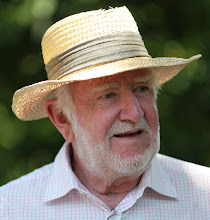An economist has said that any new disaster could spell the end of the nuclear industry.
I am not certain why economists insist on stepping outside their comfort zone to pontificate. "Give me two handed economists - that way their chances of being wrong become very small" said one president who had suffered from their ill advice.
The Japanese disaster reminds us a) that no system can be made absolutely perfect b) that when a nuclear disaster does occur, the consequences can be considerable and c) compared to the previous disaster at Chernobyl, the actual consequences were several orders of magnitude less.
Thus we engineers are getting better and better at a) reducing the risks of an accident occurring in the first instance and b) reducing the impact of an accident if it does occur. In the light of Fukushima, nations around the world have reviewed their nuclear safety, and found that comparatively minor improvements (like moving a generator out of the way of any flood!) are all that is necessary to reduce the risks to very low levels.
Over 6% of the world's primary energy comes from nuclear energy. Last year, the new nuclear energy that came on stream was larger than the much heralded renewable energy, in terms of energy actually delivered.
6% may not sound like very much, but it is six times larger than all the renewable energy so far installed. Those forests of windmills, acres of photocells and sun-capturing mirrors don't actually yield very much power. And nuclear power is there to help out when the wind stops blowing or the sun stops shining. It isn't going to go away any time soon!
I am not certain why economists insist on stepping outside their comfort zone to pontificate. "Give me two handed economists - that way their chances of being wrong become very small" said one president who had suffered from their ill advice.
The Japanese disaster reminds us a) that no system can be made absolutely perfect b) that when a nuclear disaster does occur, the consequences can be considerable and c) compared to the previous disaster at Chernobyl, the actual consequences were several orders of magnitude less.
Thus we engineers are getting better and better at a) reducing the risks of an accident occurring in the first instance and b) reducing the impact of an accident if it does occur. In the light of Fukushima, nations around the world have reviewed their nuclear safety, and found that comparatively minor improvements (like moving a generator out of the way of any flood!) are all that is necessary to reduce the risks to very low levels.
Over 6% of the world's primary energy comes from nuclear energy. Last year, the new nuclear energy that came on stream was larger than the much heralded renewable energy, in terms of energy actually delivered.
6% may not sound like very much, but it is six times larger than all the renewable energy so far installed. Those forests of windmills, acres of photocells and sun-capturing mirrors don't actually yield very much power. And nuclear power is there to help out when the wind stops blowing or the sun stops shining. It isn't going to go away any time soon!


No comments:
Post a Comment